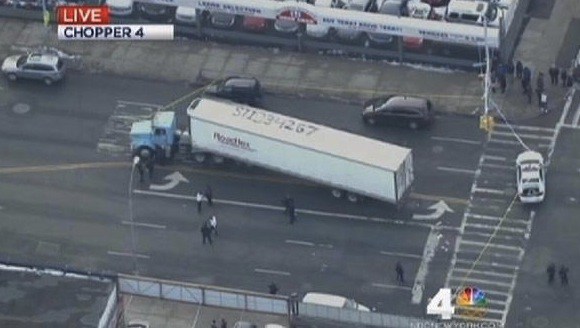Traffic deaths involving commercial trucks are on the rise.
Nearly 4,000 people lost their lives in crashes involving large trucks in 2015, the fifth consecutive year that fatalities increased.
The vast majority of these deaths -- 84 percent -- are not truck drivers, but car passengers, cyclists, or pedestrians. Commercial trucks are 20 to 30 times heavier than passenger cars and trucks and pose a disproportionate risk on city streets.
Now the Trump administration is about to make the problem worse.
A set of truck safety regulations approved during the Obama administration are primed to take effect soon. Drowsy driving has been identified as one of the top causes of fatal collisions, and these reforms are aimed at reducing the number of collisions related to fatigue. They include precautions like limiting drivers to no more than 11 hours behind the wheel in any 14-hour period and mandating electronic monitoring of hours driven, instead of paper logs that were easily falsified.
But the Trump administration is attempting to gut the new rules, which are unpopular with the trucking industry, KPCC reports.
In August, the White House nixed an Obama-era rule that would require sleep apnea screening and treatment for drivers in August. Now a proposed rule mandating speed governors, which cap the maximum speed a truck can travel, is stalling after industry lobbyists complained about the $500 price tag per vehicle. The administration has also targeted a rule requiring "underride guards," equipment that prevents smaller vehicles from getting wedged under trailers in collisions.
If the Trump administration succeeds in undoing these rules, it will cost people their lives, says Russ Rader of the Insurance Institute for Highway Safety.
"Our roads are less safe today than they have been in years," he said. "And since 2009 deaths involving crashes with large trucks have risen much faster than crash deaths overall.
"Reducing fatigue, enforcing work rules, limiting speeds, requiring stronger underride guards and getting more crash prevention technology on large trucks are proven to save lives. We know what works. We shouldn’t be turning back the clock."






